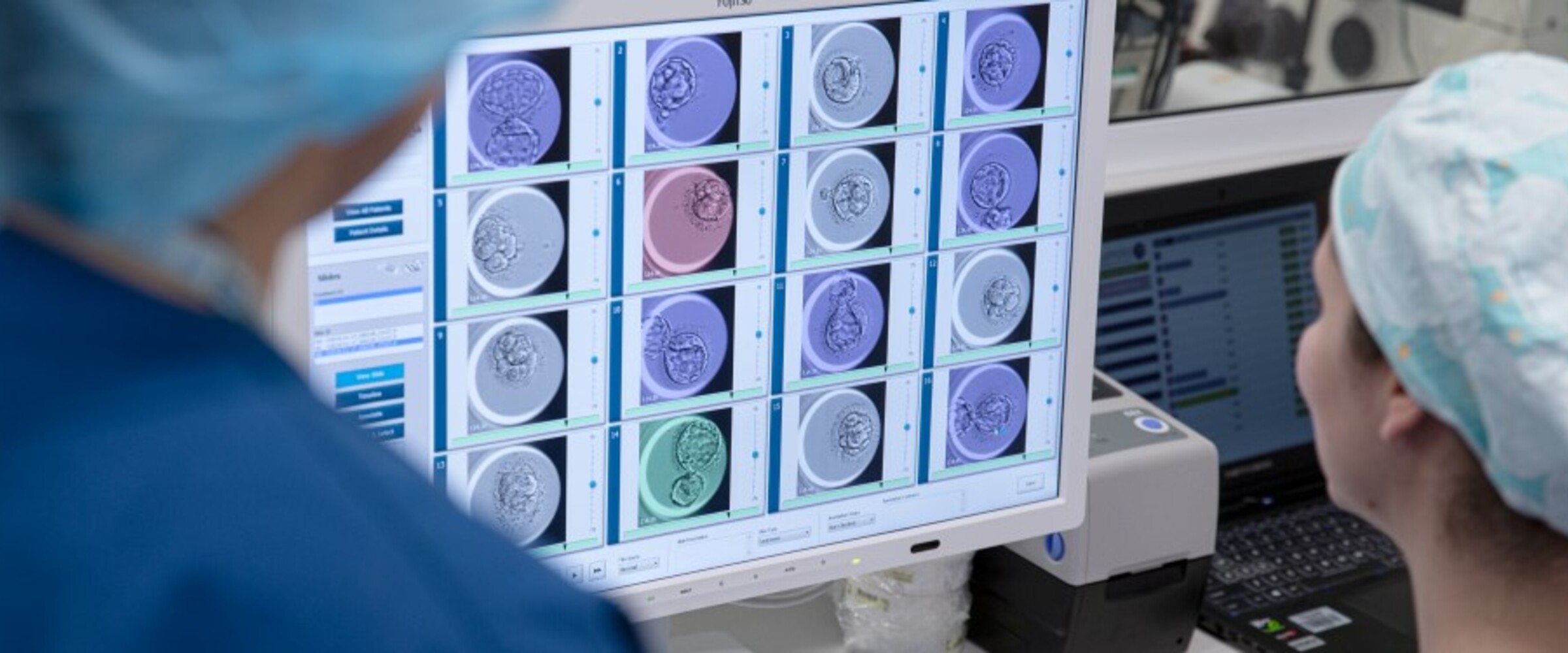
Advanced Embryo Selection Increases IVF Pregnancy Rates
The significance of arrayCGH technology is its ability to rapidly screen all 24 chromosomes in a developing embryo created in IVF treatment, prior to transfer to the woman’s uterus, which increases her likelihood of pregnancy success.
Written by Dr Leeanda Wilton
Later this month I will present to a group of GP’s in Melbourne and Sydney on arrayCGH technology, a form of microarray used in Preimplantation Genetic Diagnosis (PGD) at Melbourne IVF, IVFAustralia and Queensland Fertility Group. The significance of this technology is its ability to rapidly screen all 24 chromosomes in a developing embryo created in IVF treatment, prior to transfer to the woman’s uterus, which increases her likelihood of pregnancy success.
The ability to screen all 24 chromosomes in a developing embryo means that we are able to identify extra or missing chromosomes, which allows us to accurately know - prior to selecting an embryo for implantation - which embryos will not initiate a pregnancy, which embryos may implant but are likely to miscarry, and which embryos may result in the birth of a baby affected with a condition such as Down Syndrome.
- Dr Leannda Wilton
Having worked in the field of PGD and human genetics for more than 25 years, there is no doubt that microarray technology has provided one of the most significant IVF breakthroughs in recent times. Melbourne IVF developed earlier forms of CGH testing in the mid-1990s, in fact we were the first clinic in the world to produce a baby from an embryo that had had all of its chromosomes tested prior to transfer. But at the time the test was slow and laborious and all of the embryos had to be frozen while we waited for the results, which was certainly not ideal. Now with the type of microarray testing we have implemented, the test not only provides full chromosomal analysis of embryos, but it is rapid, highly accurate, and patients are able to have a fresh embryo transfer. Consequently, more patients are achieving pregnancy success as a result, than ever before.
I first came across 24Sure arrayCGH when biotech company Blue Gnome presented their technology at the European Society of Human Reproduction and Embryology (ESHRE) Annual Meeting in July Rome in 2010. Within 6 months, we had introduced 24Sure arrayCGH technology to Melbourne IVF –the first Australian IVF clinic to offer this advanced technology to patients, now known as Advanced Embryo Selection.
Since this time, the research conducted at Melbourne IVF using arrayCGH has attracted significant attention, both locally and internationally. In 2011, I received the award for Best Scientific Paper at the World Congress on Human Reproduction, and was subsequently an invited speaker at ESHRE in 2012. I was also invited to present the work at the PGD International Society meeting in Austria this year and at the prestigious International IVI Congress in Spain in 2013.
24Sure arrayCGH is not the only microarray technology available. Some IVF units across Australia offer similar technologies, and whilst they all provide the ability to screen all 24 chromosomes in a developing embryo, the benefits and features are different.
There is no question that from the perspective of a patient who is trying to conceive, the ability to determine chromosomally normal embryos, is the single most important feature of microarray technology. Similar forms of microarray technologies, offered by other IVF units around Australia, offer additional features that are largely irrelevant. Features such as the ability to determine parental origin of aneuploidies, distinguish between mitotic and meiotic errors, or confirming genetic parentage sound important, but when it comes to treating infertile couples in IVF, they do not improve the success rate of embryos implanting and going on to form a healthy pregnancy. This is ultimately the only reason patients come to Melbourne IVF for this technology – the desire for a healthy baby.
One of the benefits of our arrayCGH is that we can get results rapidly, so we don’t have to freeze embryos and patients don’t have to wait 4 or more weeks to get their embryos transferred.
The other key difference is that our test works on just a single cell. This means we can accurately test embryos on day 3 and do not have to wait till they grow to the blastocyst stage on day 5 or 6. Only about 50% of embryos grow to the blastocyst stage in the lab. If you have to wait till day 5 or 6 to do the testing then only a few embryos can be tested and more than half of the patients will not have any embryos at all to test. We’ve had many babies born from embryos that would not have been tested (and probably would have been discarded) if we had to wait till they were at the blastocyst stage. Some patients have asked me about a study from the USA which suggests that day 3 biopsy damages embryos. Maybe in some labs this is the case, because different scientists can have different levels of skill. However, at Melbourne IVF we have more experience than anyone in the world at cleavage stage biopsy (I won a scientific prize for developing the technique way back in 1986!) and we know that testing on day 3 means more babies are born to more patients.
My award winning research has also shown that chromosomal mosaicism (where some cells in the embryo are normal and some are abnormal) in day 3 embryos is much less than previously thought, and about the same level as mosaicism found in blastocysts. This reinforces our position that testing a single cell from day 3 embryos is in the patient’s best interests.
For these reasons, we believe 24sure arrayCGH, available as Advanced Embryo Selection at Melbourne IVF, IVFAustralia and Queensland Fertility Group, is the technology of choice for full chromosome screening.
